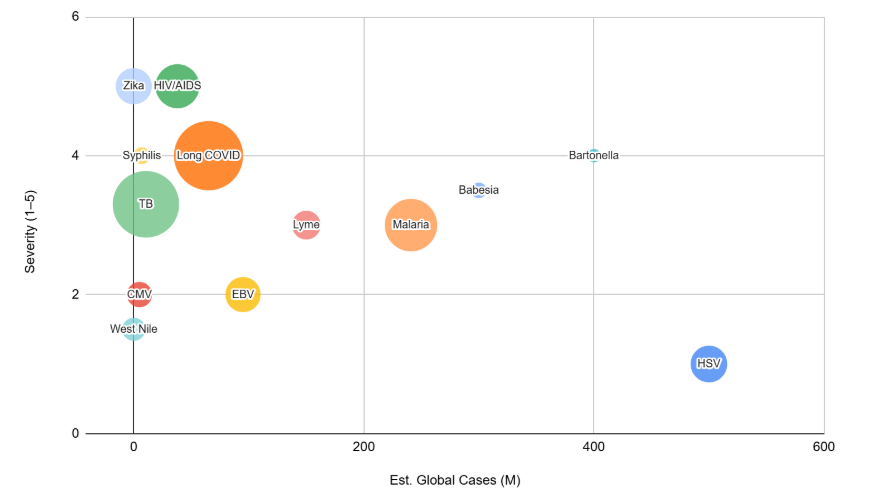AIDA
Autism Infectious Disease Alliance
Autism Infectious Disease Alliance
Autism Infectious Disease Alliance (AIDA) funds groundbreaking research into the infections and immune factors that may lie at the heart of some cases of autism. We believe the key may already be in front of us, hiding in plain sight.
We're dedicated to exploring infectious and immune-mediated causes of autism that have been overlooked by traditional research. Our focus includes bartonellosis, babesiosis, and borreliosis.
We provide resources, education, and community for families navigating the complex terrain of autism diagnoses and potential infectious triggers.
By pursuing overlooked biological factors, we aim to transform autism from a behavioral diagnosis to a treatable medical condition for many affected children.
Based on 1000s of published research papers, AIDA is building bridges between researchers, vector-borne disease experts, clinicians, families, and public health leaders to create meaningful change in how we understand and treat autism.
Support scientific investigation into infectious and immune causes of autism, with particular focus on stealth pathogens like Bartonella.
Provide families and clinicians with existing and emerging science on overlooked infections and diagnostic gaps in autism spectrum disorders.
Push for large-scale clinical studies and NIH recognition of stealth pathogens, neuroinflammation, and immune dysfunction in autism.
We're committed to ending the stigma by reshaping how we understand autism, not just behaviorally, but biologically. This paradigm shift has the potential to help millions of affected children.

A mother, writer, and national advocate with an extensive background in fintech, AI, product management, and innovation at JP Morgan Chase and Mastercard. Debbie uncovered a hidden pattern in her own family: a constellation of autism, autoimmune illness, OCD, ADHD, and neuropsychiatric symptoms.
With guidance from vector-borne disease physicians and groundbreaking research by vector-borne disease experts, her son improved significantly while undergoing treatment. This personal journey led her to co-author A Blind Spot on Autism and establish AIDA to help other families find answers.
Autism frequently clusters with autoimmune diseases, ADHD, and PANS in families, suggesting shared biological vulnerabilities.
Symptoms sometimes emerge after immune challenges: infections, stress, or other immune activators.
Bartonella, Babesia, and Borrelia have been found in some children with autism or PANS/PANDAS, with remarkable improvements following antimicrobial treatment.
Autism now affects 1 in 31 children in the United States, with approximately 7 million people already diagnosed.
Despite the epidemic numbers, there has been zero federal funding directed specifically toward investigating infectious or immune causes of autism.

Support prevalence research, diagnostic tool development, and treatment studies that could transform lives.
Help us train more doctors to recognize and treat infectious triggers in potential infectious causes autism spectrum disorders in some cases.
Join our newsletter to receive updates on research breakthroughs, upcoming events, and resources for families.
